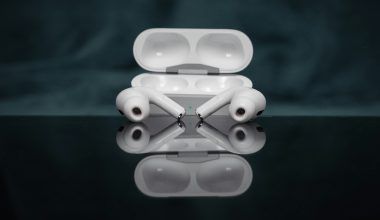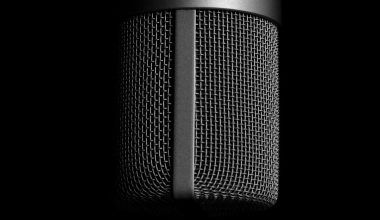What Is DJ Work?
DJ work is all about playing and mixing music to make people happy, excited, or emotional. DJs, short for disc jockeys, are the life of the party at clubs, weddings, events, and even radio shows. But it’s not just about pressing play—it’s about creating an experience.
If you’ve ever seen a DJ make a crowd go wild at a concert or smoothly mix songs on the radio, you’ve already witnessed the magic of DJ work. DJs are artists, entertainers, and technicians rolled into one.
Why Is DJ Work So Popular?
People love music, and DJs bring music to life. With the rise of live events, festivals, and online streaming, DJs are more in demand than ever.
Here’s why DJ work is exciting:
- It’s Creative: You can put your unique spin on songs and create remixes.
- It’s Fun: Imagine being the person who gets the crowd dancing and smiling.
- It Pays Well: DJs can earn good money at events, clubs, and private parties.
- It’s Flexible: You can do it part-time, full-time, or just as a hobby.
What Does a DJ Do?
A DJ’s job isn’t just to play music. They:
- Mix Songs: Make smooth transitions between tracks so the music flows.
- Read the Crowd: Play music the audience loves to keep the energy high.
- Create Playlists: Plan which songs to play for the right vibe.
- Use Equipment: Operate turntables, mixers, and software to create amazing sounds.
Whether at a wedding, club, or festival, DJs use their skills to make every event unforgettable.
Types of DJ Work
There are different types of DJ work. You can choose the one that fits your style:
- Club DJs: Play at nightclubs and bars, creating high-energy vibes.
- Wedding/Event DJs: Play a mix of popular songs at weddings and parties.
- Radio DJs: Choose and play songs for radio listeners and host talk segments.
- Mobile DJs: Travel with your setup to perform at events anywhere.
- Performance DJs: Showcase mixing and scratching skills in live shows.
How to Start Your DJ Work Journey
Starting DJ work doesn’t have to be complicated. Follow these steps:
Step 1: Learn the Basics
- Watch YouTube tutorials or take online DJ courses.
- Understand basic terms like beatmatching, tempo, and crossfading.
Step 2: Get the Right Equipment
To start DJing, you need:
- A DJ controller to mix songs.
- DJ software like Serato, Traktor, or Rekordbox.
- Headphones for listening to tracks while mixing.
Step 3: Practice Daily
- Mix songs at home and experiment with transitions.
- Practice reading the energy of an imaginary crowd.
Step 4: Build Your Music Library
Collect songs from different genres to prepare for any event.
Step 5: Start Small
- Perform at friends’ parties or small events.
- Build confidence before taking on bigger gigs.
Tools Every DJ Needs
If you want to succeed in DJ work, having the right tools is essential. Here’s what you’ll need:
- DJ Controller
A controller is like a DJ’s main instrument. It helps you mix songs, adjust volume, and add effects. - DJ Software
DJ software organizes your music and helps you mix tracks. Popular options are:
- Serato
- Rekordbox
- Traktor
- Headphones
Good headphones help you hear tracks clearly while mixing. - Speakers
You need speakers to play music at events and practice sessions. - Laptop
A reliable laptop with DJ software is a must for organizing and playing music.
Skills You Need for DJ Work
To be a great DJ, you need to learn some key skills:
- Beatmatching
This is matching the beats of two songs so they mix smoothly. - Song Selection
Choose songs that match the mood of the event. - Crowd Reading
Understand what the audience likes and play the right songs to keep them happy. - Technical Skills
Learn how to use your equipment and software like a pro. - Branding and Marketing
Promote yourself on social media to get gigs.
The First Gig: How to Prepare
Your first gig as a DJ can be exciting and nerve-wracking. Here’s how to prepare:
- Create a Playlist
Prepare a setlist with songs that suit the event. - Test Your Equipment
Check your controller, laptop, and speakers to ensure everything works. - Arrive Early
Get to the venue early to set up and test your sound. - Stay Calm
Mistakes can happen, but staying calm and confident is key.
How to Build Your DJ Career
As you gain experience, you’ll want to grow your DJ career. Here’s how:
1. Network
- Meet event organizers, club managers, and other DJs.
- Build relationships that can lead to gigs.
2. Build an Online Presence
- Post your mixes on platforms like SoundCloud and Mixcloud.
- Share videos of your gigs on Instagram and TikTok.
3. Create a Brand
- Choose a DJ name and logo.
- Keep a consistent style across your social media.
Challenges in DJ Work
DJ work is rewarding, but it also has challenges. Here’s how to tackle them:
Problem: Equipment Issues
Solution: Always carry spare cables and a backup device.
Problem: Nervousness
Solution: Practice in front of friends or record yourself performing.
Problem: Low Gigs at First
Solution: Focus on improving your skills and building your network.
The Future of DJ Work
DJing is constantly evolving. Here are some trends to watch:
- Live Streaming: DJs are performing online for global audiences.
- AI Tools: New technology helps with track selection and transitions.
- Virtual Events: Virtual reality is creating new opportunities for DJs.
Tips for Success in DJ Work
- Stay Updated
Keep learning about new music and technology. - Practice Every Day
The more you practice, the better you’ll get. - Engage Your Audience
Make your performance fun and interactive. - Be Professional
Always be on time and respectful to clients. - Enjoy the Process
Remember why you started—because you love music!
Conclusion
DJ work is more than just a career—it’s a way to share your love for music and make people happy. Whether you want to DJ at clubs, weddings, or online, this guide has everything you need to get started.
Take small steps, practice every day, and stay dedicated. With time, you can turn your passion for music into a rewarding and exciting career as a DJ.
Ready to start your journey? The stage is waiting for you!
Related Articles:
For further reading, explore these related articles:
- How Spotify Pays Artists: A Beginner-Friendly Guide
- The Ultimate Guide To Music Distribution : Reach a Global Audience
- The Ultimate Guide to Free Music Distribution for Independent Artists: Everything You Need to Know
For additional resources on music marketing and distribution, visit Deliver My Tune.






